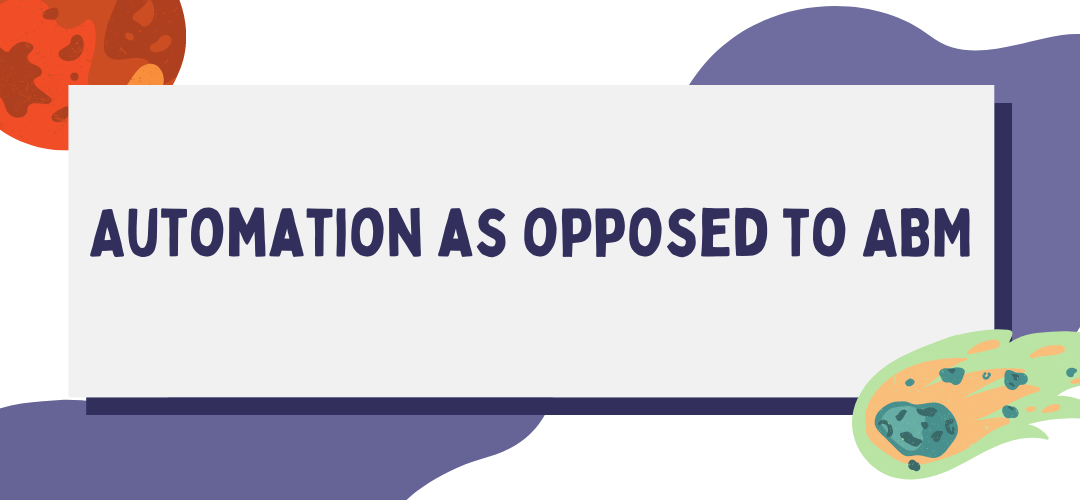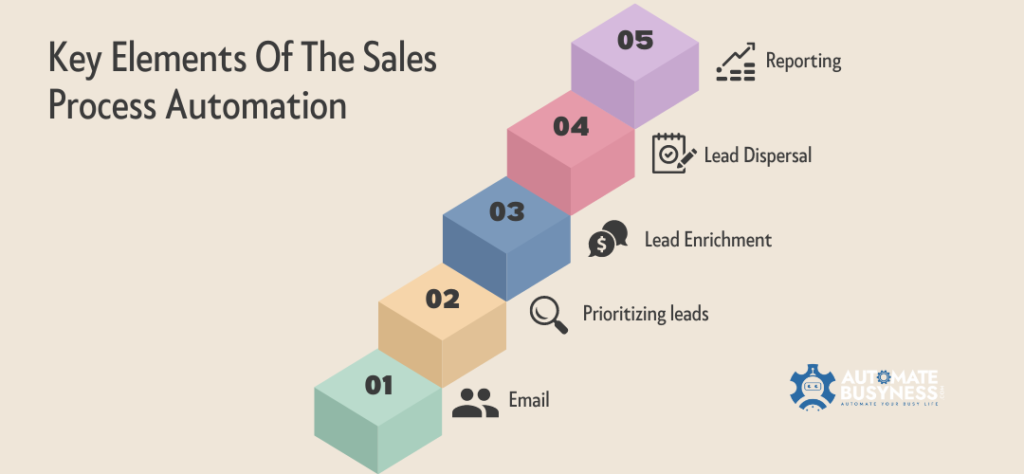Utilizing technologies to automate routine marketing chores is known as marketing automation. Automation may allow marketers save a good amount of time when it comes to follow up on leads and directing potential customers along the conversion funnel.
Marketing automation technologies usually incorporate software for relationship management with customers (CRM) and customer data management (CDP).
By utilising automation tools, marketers can personalise the messages or data they provide to leads. They can also schedule conversations and automate common responses. For businesses with big customer databases, these tools can significantly increase the productivity of the sales and marketing teams.
Small businesses frequently take great pride in their personal touches. But it’s not scalable to send individual emails to leads. Finding innovative strategies to stay in touch with individuals at various stages of the customer lifecycle is crucial as a company’s reach expands.
The Automation Sector Is Expanding
Over the past few years, there has been a surge in interest in marketing tools, and this trend seems certain to continue.
2018 saw Adobe pay $4.75 billion to acquire Marketo, a provider of marketing automation. In the previous nine years, important purchases of marketing automation have also been undertaken by Oracle and Salesforce.
In December 2020, Exponea was purchased by Bloomreach, a supplier of digital experience platforms (DXP). Exponea provides connectors for CDPs and marketing automation.
Intuit announced plans to purchase Mailchimp for $12 billion in cash and stock payments in September 2021. A marketing automation and customer engagement tool geared toward small and medium-sized businesses, Mailchimp.
According to Susan Goodarzi, CEO of Intuit, the company wanted to develop the platform to become the hub of business growth for smaller & medium-sized enterprises. According to Goodarzi, “[This] helps individuals get through their most significant financial obstacles.
By including Mailchimp, we get closer to realising our aim of offering a complete customer growth platform that will empower our clients to successfully run and develop their businesses.
By 2027, it is anticipated that the size of the worldwide marketing automation industry would be $8.42 billion. According to a 2020 analysis from ResearchAndMarkets.com, this indicates that the industry is anticipated to grow at a CAGR of 9.8% from 2020 to 2027.
Marketing Automation Aids In Customer Understanding
According to a 2018 Epsilon Research report, 80% of consumers are more likely to make purchases from companies who offer individualised and useful experiences. Brands may utilise marketing automation to provide these individualised experiences.
Smaller businesses can provide their client service a personal touch. When an account manager just has a few clients to take care of, they may remember their preferences and demands quite easily.
It’s challenging for bigger businesses or time-constrained solopreneurs to deliver that experience.
Marketing Automation’s Future
Brands can interact with their customers more effectively thanks to marketing automation solutions. According to Andrea Lechner-Becker, chief marketing officer of LeadMD, these technologies simplify the lead management process, increase the scalability of marketing initiatives, and aid firms in boosting their sales.
Lechner-Becker stated to CMSWire, “That’s the definition and that’s what it’s supposed to do.” But it doesn’t actually happen without the right instruction, plan, and execution.
What Marketing Applications Do Automated Systems Have?
Let’s look at a real-world instance of an automated marketing system in action. An automated email that is delivered to a user in response to pre-set marketing automation platform behaviour triggers.
Nitai Aventaggiato, co-founder of Helpmonks, stated that you can “remind a website visitor of products in their abandoned shopping cart, or send an automated email welcome series to subscribers.”
“Marketing automation helps businesses grow revenue more quickly, boost efficiency, and communicate with clients more personally.”
Additionally, customised messages based on prior purchases can be sent via automated systems. For instance, a customer who buys a printer can later receive special offers on printer cartridges.
When a consumer of nutritional supplements would be assumed to have finished their last order, suggestions for other flavours might be made.

Automation As Opposed To ABM
Account-based marketing (ABM) and marketing automation software are thought to merge as the next stage in streamlining marketing by several vendors and analysts.
ABM software providers are enhancing their products with more marketing automation-like features and functionality. ABM can now incorporate native email, form and landing page features, engagement initiatives, and native databases. Some additionally provide use cases for prospecting and demand development.
B2B marketers can more effectively work with sales teams by using account-based marketing software to target and identify accounts based on certain parameters. This strategy is distinct from that utilised in B2C, when advertisers focus on specific people.
In its Forrester Tech TideTM: Extended CRM Technologies, Q1 2021, Forrester explains. The technology now supports contextual and tailored digital marketing instead of the antiquated approaches of drip marketing on steroids and fill-the-funnel efforts.
This is “an increasingly significant client interaction strategy in all businesses,” they continued.
Qualified Leads,The Holy Grail Of Marketing Automation
Organizations other than B2B ones can gain from automation. In the B2C sector, marketing automation has a lot to offer.
The goal of marketing automation is to increase conversions, generate qualified leads, market broadly, and personalise communications. To collaborate between marketing and sales, qualified leads are useful.
Having highly qualified leads makes life simpler for marketing professionals and helps fill sales funnels. Whether you’re marketing to businesses or consumers, it’s critical to have insightful, productive conversations with potential customers.
Martina Bretous, a marketing writer for HubSpot, discusses the value of keeping in touch with prospects frequently. To turn leads into customers, it is vital to nurture them through email correspondence and social proof.
As a business expands, Bretous emphasises the advantages of automation for expediting this process. She clarifies, “These strategies can not only save your team time, but they can also make the conversion process more efficient so that no lead is lost in the shuffle. Additionally, this strategy frees up your sales and marketing personnel to concentrate on high-ticket items.”
Finding Reliable Leads
Marketing automation facilitates the acquisition of qualified leads in a number of ways, according to Jasmine Chung, director of demand generation for Openprise:
- tracking behavior and demographic/firmographic data using a scoring model
- establishing landing pages that behave and appear like the main website
- dynamic content with a strong emphasis on customization
According to Aventaggiato, the secret to generating leads is sending the appropriate messages to the appropriate prospects at the appropriate time. Businesses may send timely, relevant communications to customers with the use of marketing automation.
They are able to engage with potential customers and current clients on a deeper level, he claimed. Lechner-Becker disagrees after taking a different angle on marketing automation and leads.
They contend that marketing automation does not assist in generating qualified prospects. It does nothing more than encourage you to send more emails and perhaps encourage more individuals to fill out sign-up forms. The scale of a business can be increased with marketing automation, but the quality of leads cannot.
ALSO READ
You may also like our other related articles on automation :


